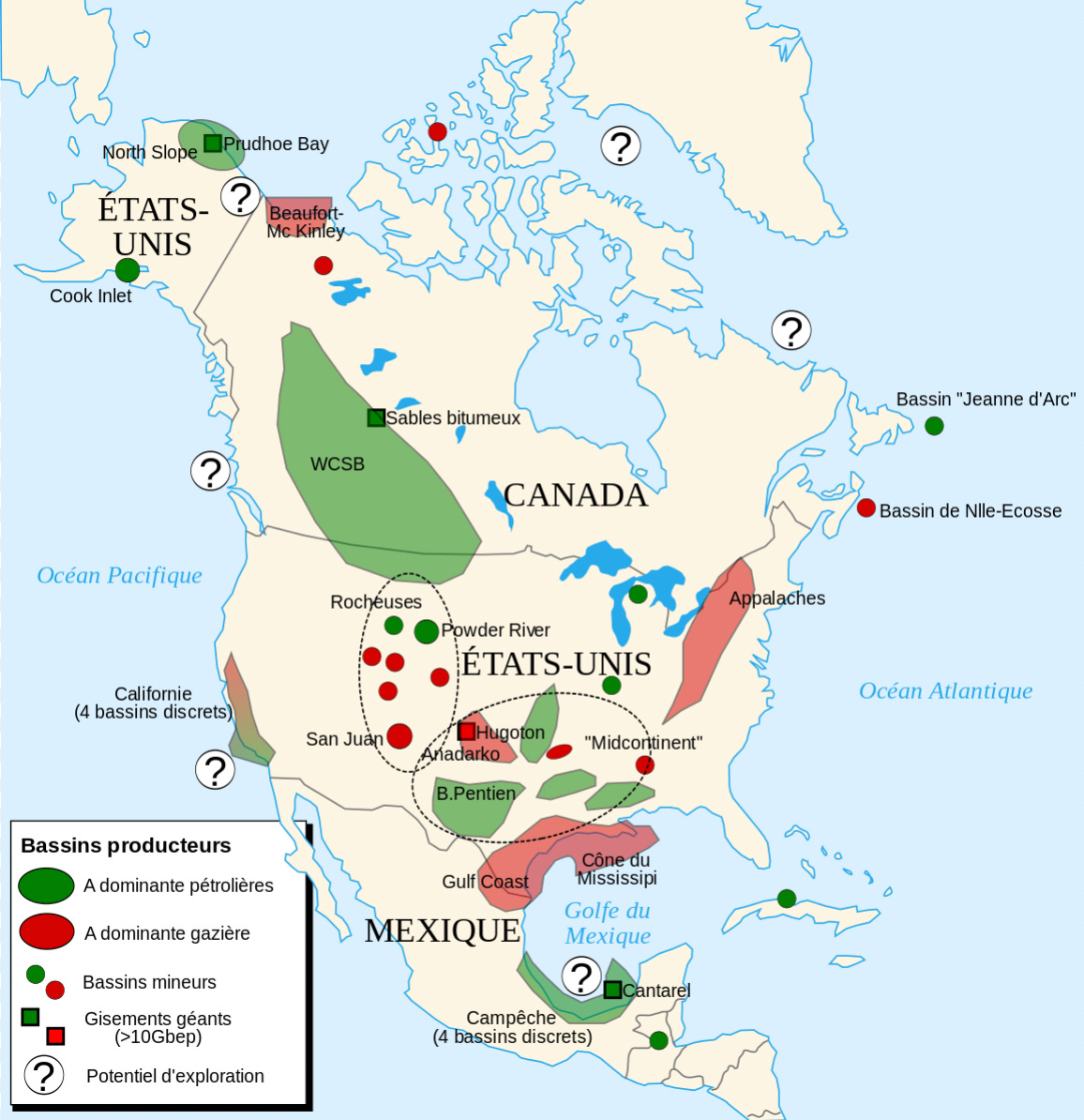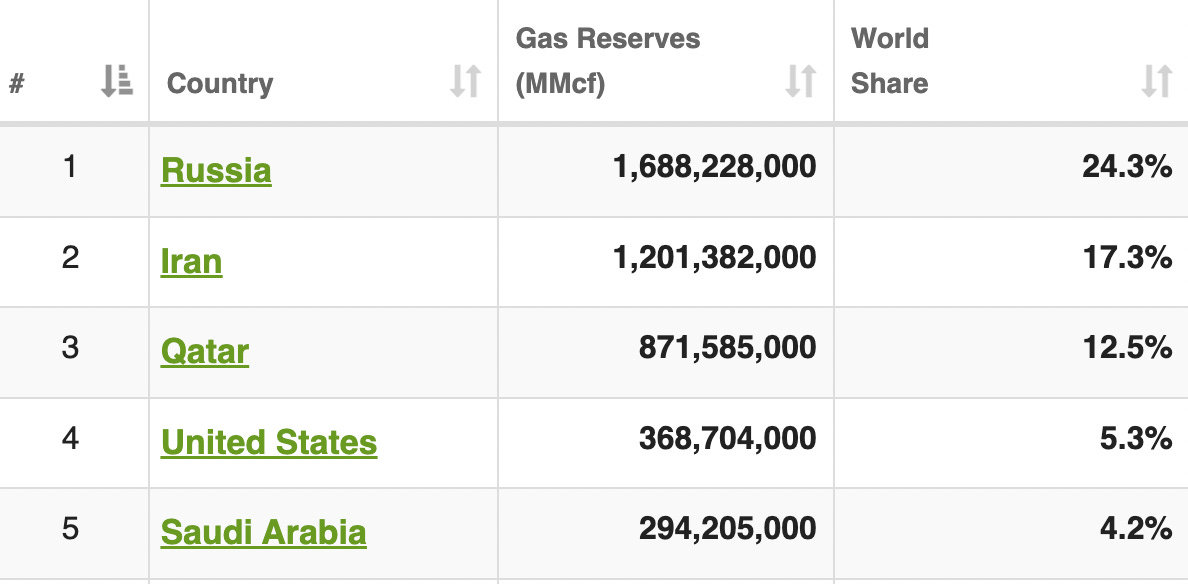Germany’s decision to scrap nuclear plants by the end of 2022 made the country – Europe’s engine of growth – dependent on Russia for energy, facilitating Vladimir Putin’s energy blackmail and war against Ukraine. The nuclear ban, promulgated by Greenpeace, never made sense because nuclear technology is safe and emissions free. But anti-nuke criticism was stoked by Moscow as was this month’s OPEC price hike designed to kick the West and developed world in the teeth as they cope with war, costly sanctions, and energy hyper-inflation. Finally, Berlin reversed course this week and announced its nuclear plants will reopen indefinitely, a policy shift also undertaken by oil-poor Japan. The world now realizes that energy is the lifeblood of all nations and Russia’s energy games and atrocities is going to result in a post-war world divided into alliances based on access to safe sources of energy. Sitting atop it all will be North America with a resource endowment that represents the ultimate competitive and geopolitical advantage going forward. Only Fortress North America, based on energy independence and further development, can counteract the world’s petroleum villains.
The United States and Canada should begin to formalize a binational fossil fuel arrangement, or grid, that Mexico could also join. The three countries could collaborate to develop more nuclear, hydroelectric, and renewable energy, but, most importantly, rationalize the production and distribution of fossil fuels to lower emissions, keep costs down, eliminate imports from OPEC, and generate surpluses that could be exported to Europe and other allies.
Energy trade between the “Three Amigos” of North America is already well advanced, but political obstacles have impeded the creation of a fully managed energy market that could improve the energy outlook domestically and globally. The goal would be to set a continental price for oil and natural gas based on supply and demand, not OPEC’s dictates. Prices would provide reasonable returns to producers as well as fair prices for consumers, industries, farmers, and developers. This would become the cornerstone for economic growth indefinitely and create surplus supplies that could liberate North America’s economy – and their allies – from the vagaries of terrorist regimes who dominate OPEC.
Greenpeace and other environmentalists would argue, as they did in Germany, that nuclear and fossil fuels should be banned and replaced with renewables. But that is foolish as well as impossible. Renewables must be supplemented with nuclear or fossil fuels because the wind doesn’t always blow, the sun doesn’t always shine, and wind and solar surpluses cannot be stored efficiently. The reality is that fossil fuels will be around for decades and are also essential to produce petrochemicals, pharmaceuticals, and plastics. Emissions are being reduced through carbon offsets and carbon capture techniques (and more can be done). But the reality is that, according to a 2020 report by the U.S. Energy Information Administration, even if aggressive emissions reduction policies are put in place by 2040, oil production in the U.S. would be only slightly less than now, or 10 million barrels a day, compared to 12 million per day currently.
The three countries are interdependent, but full energy independence has not been reached, nor sought, due to political obstructionism and OPEC influence that lurks, as it did in Germany, behind all anti-development campaigns. The greatest anti-resource activity, helped by OPEC influencers and billions of dollars, has been to try and strand Canada’s massive oil and gas reserves. Foreign opposition against Canadian oil and gas pipelines, and also electric transmission lines, has been unrelenting and effective.
The anti-development mentality has also infected Canada’s current federal regime, run by environmental zealots who are as misguided as Germany’s were. It has piled on economically suicidal anti-resource legislation since 2015. The Justin Trudeau regime even spent $414 million in Canadian taxpayer dollars to financially support domestic and foreign groups aimed at sabotaging Canada’s oil and gas industry. Because these resources are overwhelmingly located in two Western provinces that vote against Mr. Trudeau, there has been little pushback at the ballot box by Canadians. But many were upset when Trudeau recently turned down a high-profile energy opportunity from Germany, billions in development funds, to build pipelines and LNG (Liquefied Natural Gas) projects in Eastern Canada for export to Europe to help end dependency on Russia. Trudeau claimed there was no “business case” and then, days later, Australia inked a multi-billion dollar LNG deal with Germany. Trudeau has also refused to help the war effort with military aid but, more importantly, by refusing to dramatically boost oil or gas production to replace Russian energy.
Geopolitically, and economically, such attitudes are madness. North America is the world’s only trading bloc comprised of three resource giants. In 2021, they produced a combined total of 18 million barrels of oil a day (1.7 million in Mexico, 4.7 million in Canada, and 11.6 million in the U.S.). In 2021, they imported a combined total of 9.86 million barrels a day, mostly from one another. Mexico imported 260,000 barrels a day from the U.S., Canada 1.6 million a day from the U.S. but also Saudi Arabia, and the U.S. imported 8 million a day, half from Canada and the rest from OPEC countries.
If united, the three could meet all their energy needs and also be able to build a massive export industry by providing fuel to Europe, Japan, and other friendly nations. This potential was already demonstrated when, in a handful of years amid concerns about Russia’s gas grip, the United States restructured its gas industry. It now has more than 140 LNG processing plants and ports and has become the world’s biggest LNG exporter. Working with Canada, the two could shut down and help replace all Russian oil and gas exports to Europe and to Asia.
Natural gas reserves, the top five countries:
The U.S. is a natural gas and oil giant. The Canadian province of Alberta alone has one of the world’s biggest oil and natural gas endowments and Saskatchewan has as much uranium, used in nuclear reactors, as does Kazakhstan or Australia. In addition, Mexico has sizeable oil and gas reserves. The continent’s resource base, harnessed to its know-how, capital, and research and development expertise (to reduce emissions and to develop small module nuclear reactors) could clean up the world and put Russia and its sidekicks out of business. Without Fortress North America, more coal and wood will be burned and, worst of all, more nations will be forced to buy energy from Russian thugs and treacherous sheikhs.







As an Albertan, sitting on one of the largest oil/gas reserves in the world - I have suffered watching our Federal Leader destroy the oil/gas industry in Saskatchewan AND Alberta in order to win 'brownie' points awarded by the Paris Accord. Trudeau has failed not only Canada but the world with his arrogant policies that have crippled the Canadian economy. Also, when Pipeline EAst was proposed, to cross Canada from the West to the East, it was Quebec that had the power to stop it by saying 'Quebec doesn't have the appetite for a pipeline' while ships from Saudi, loaded with their oil/gas unload at Quebec's harbor. Our current Federal Gov't,supported by a poorly lead NDP leader Singh, are destroying the country's unity - East vs West. Thank you Diane for this article becuz maybe Canadians will finally grow some 'balls' & kick that destructive Liberal Party into outer space where it can do no harm.
Common sense is not so common. Loved your article.